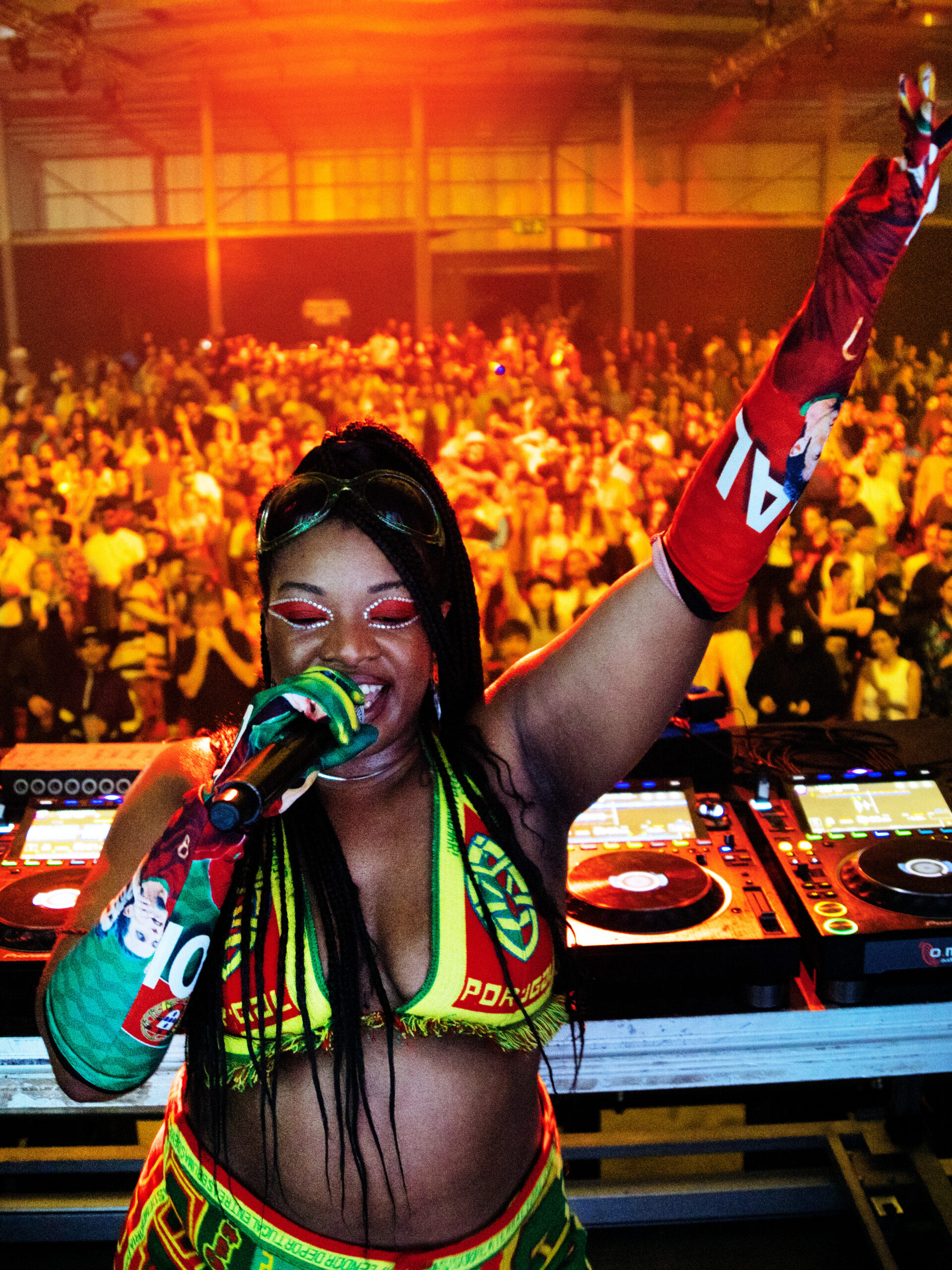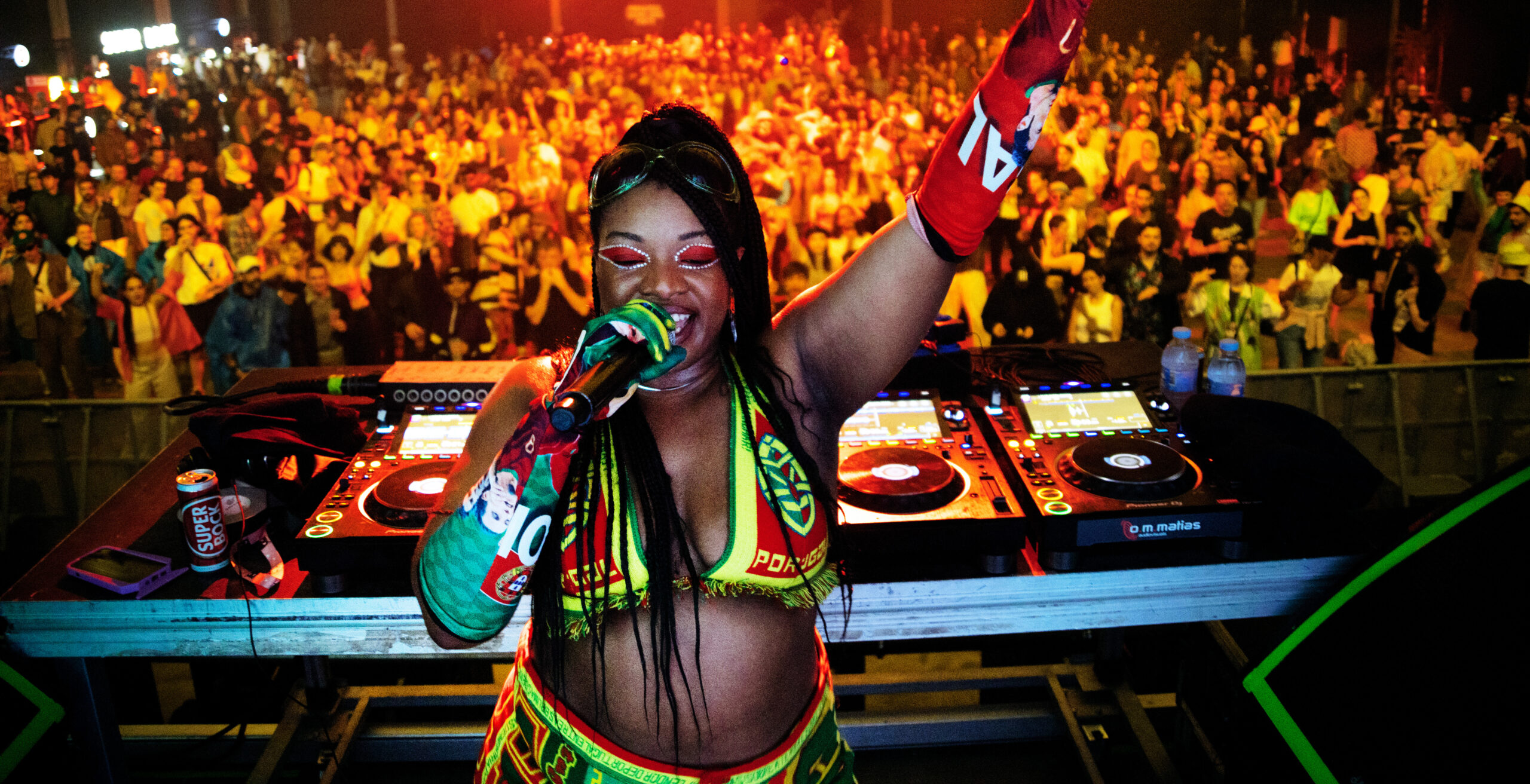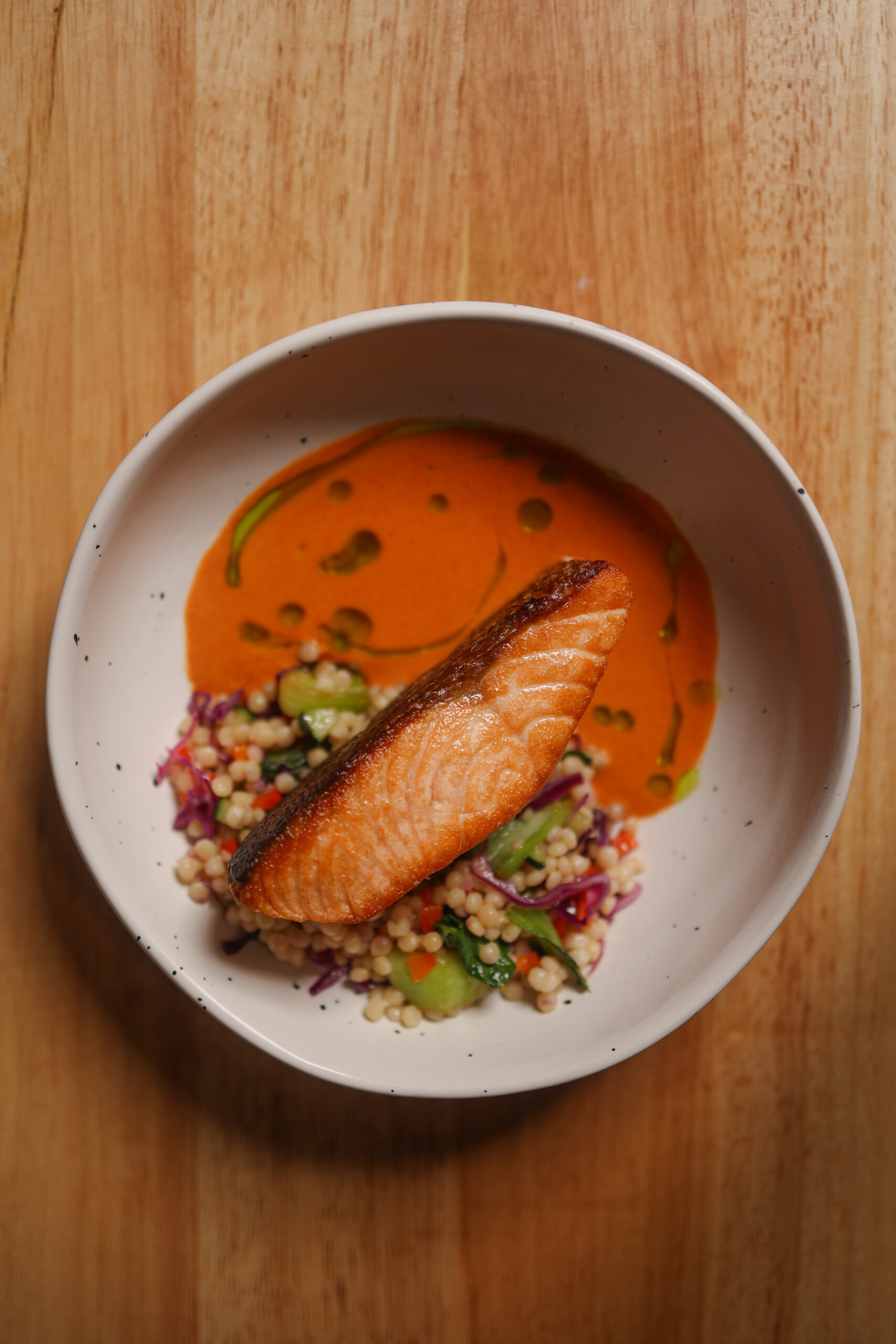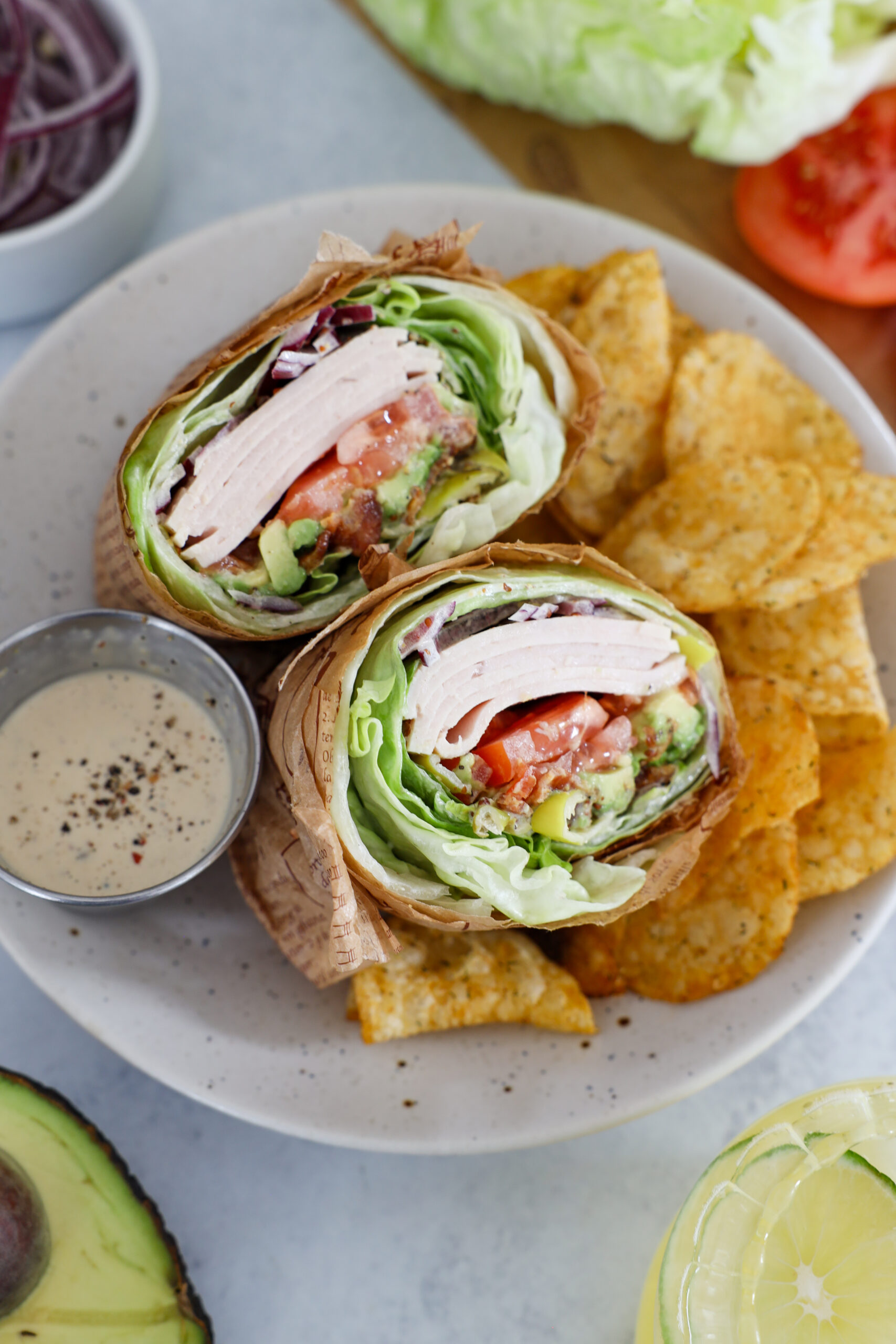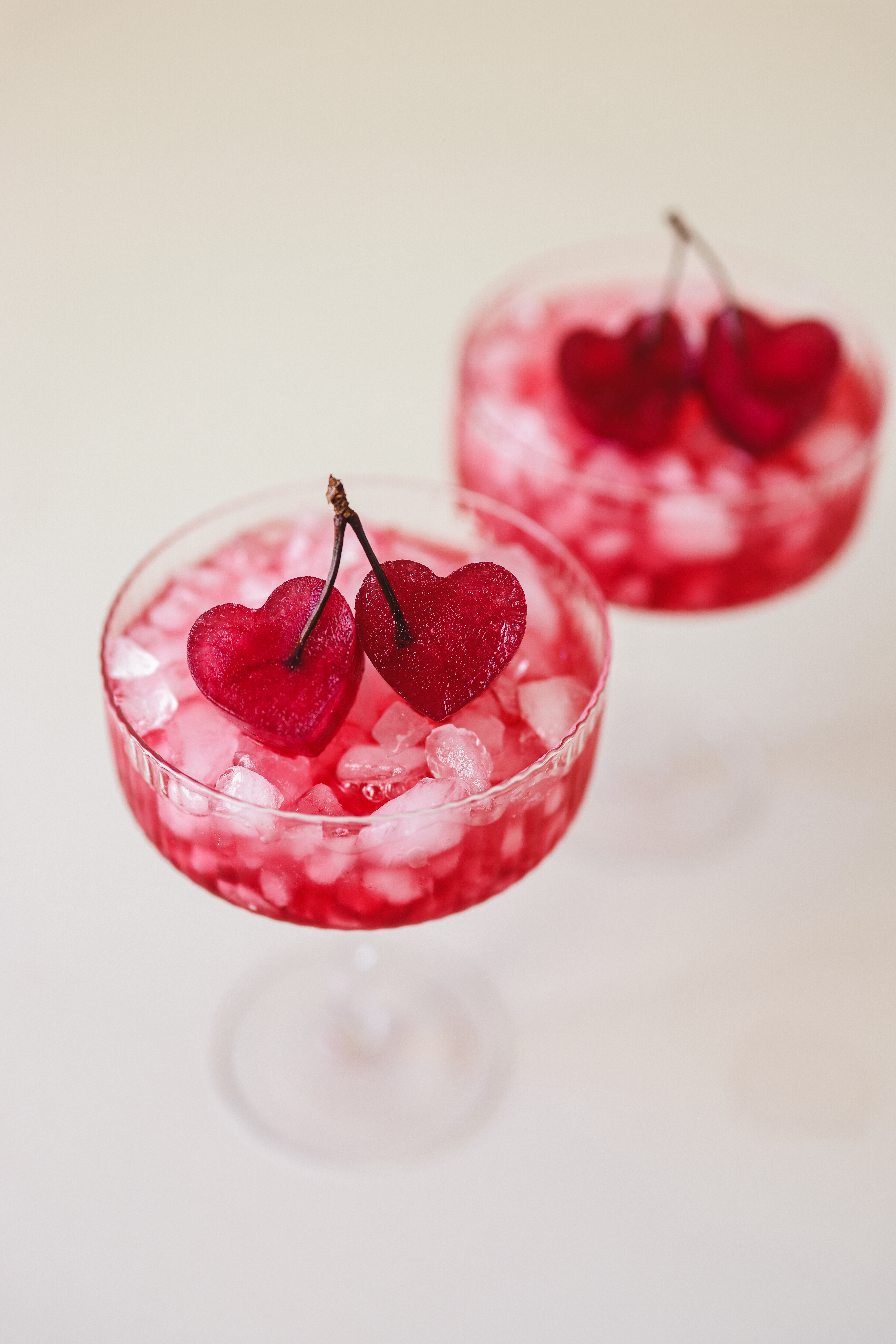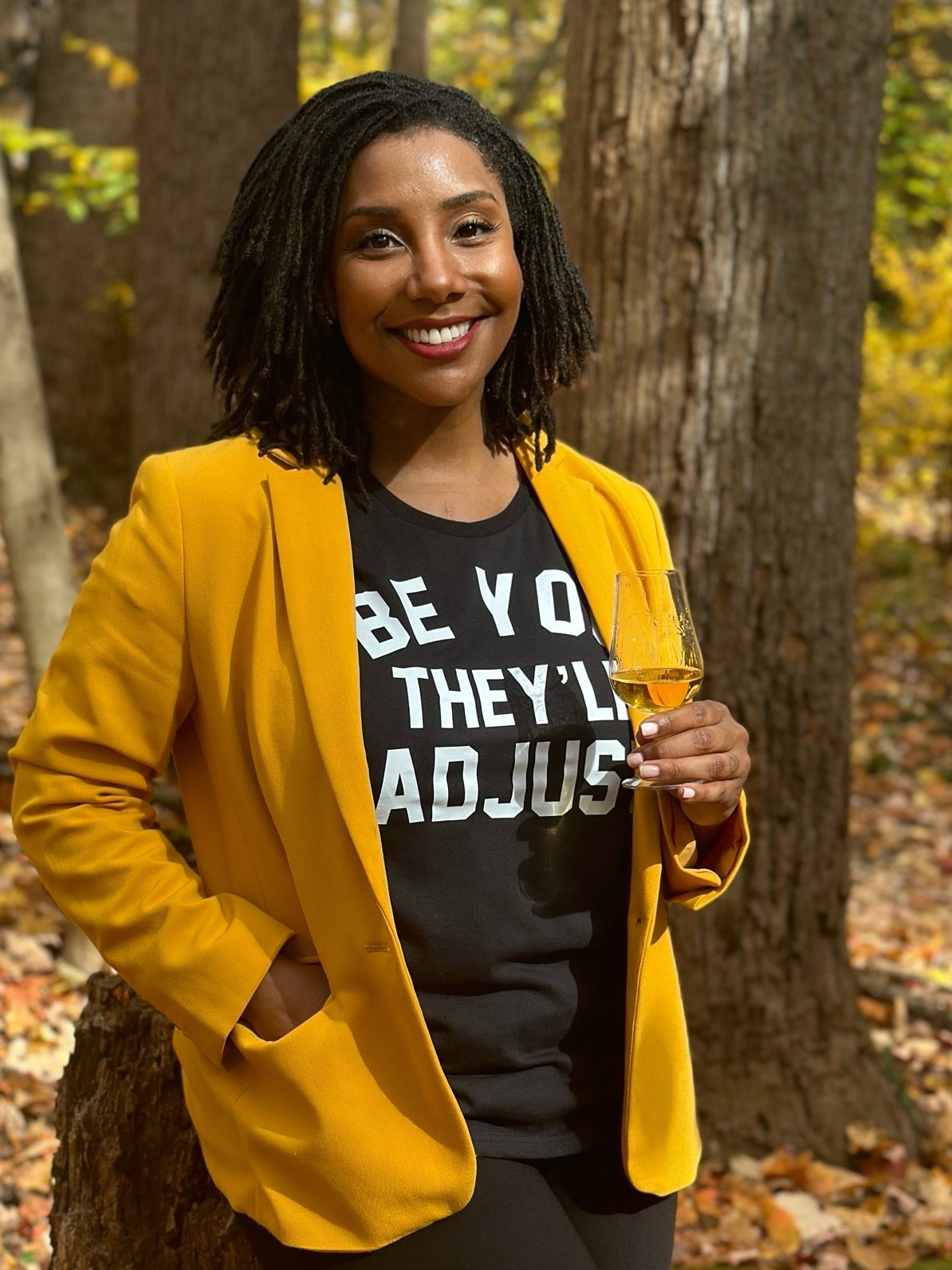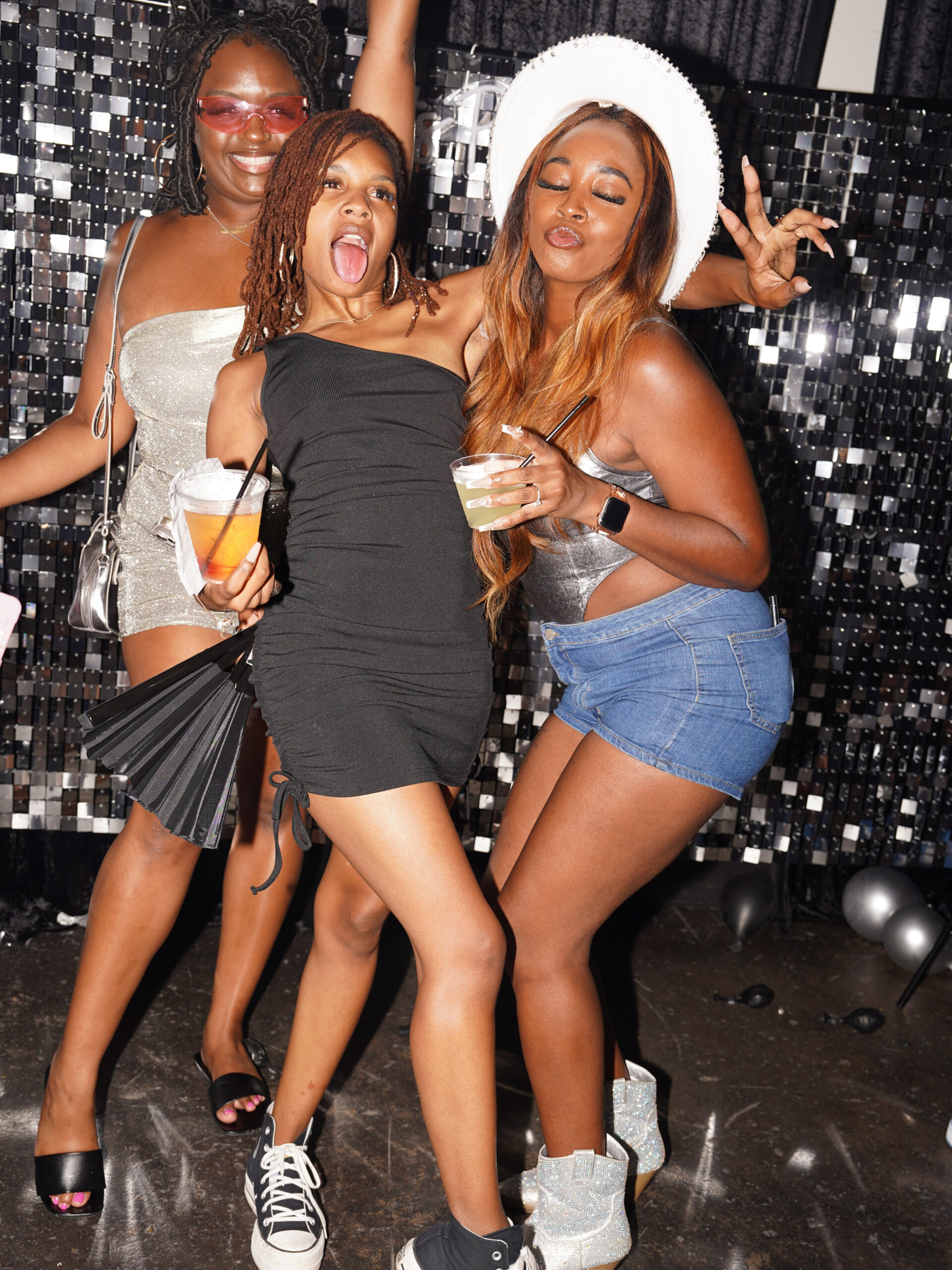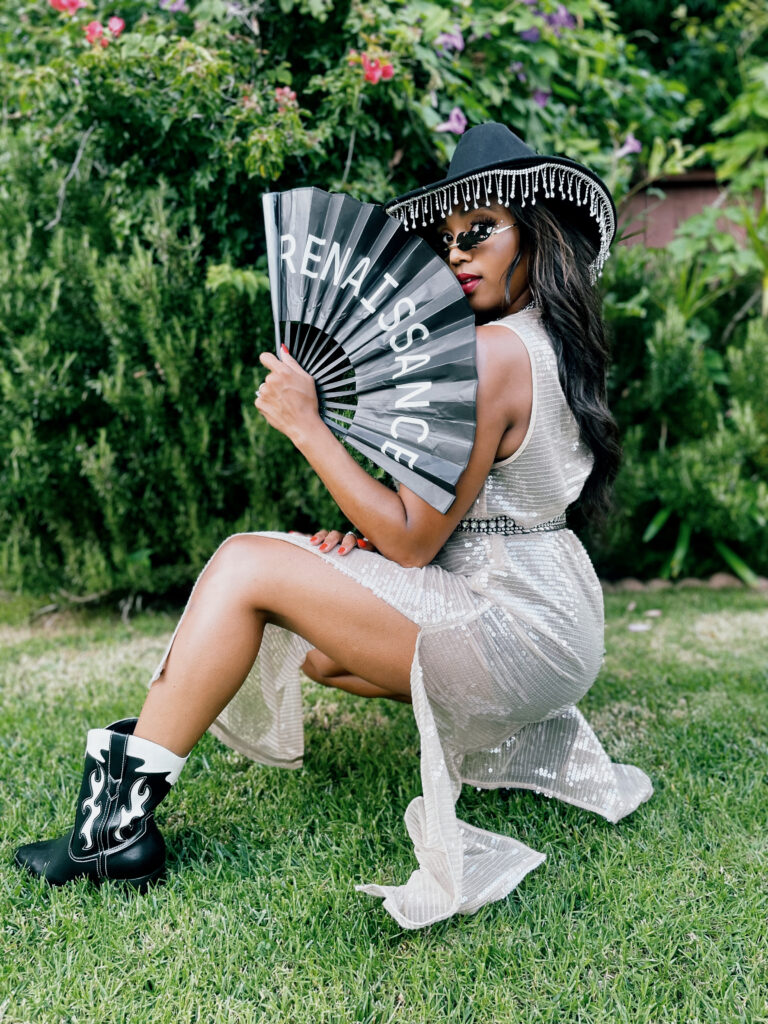Music, particularly hip-hop and electronic dance music, is part of my DNA. My beloved dad loves to share the story of how I would “dance” in the womb, bringing delight to him (and unfortunately, pain to my mother) whenever he’d blast the timeless hip-hop anthem “The Show” by Doug E. Fresh and the Get Fresh Crew from his speakers.
I first acquired my deep appreciation for music in the late ‘80s when my family and I were stationed (my dad was in the U.S. Army) in Germany. I witnessed my dad’s passion as he DJed events, coupled with my mom’s impressive and eclectic vinyl records collection. While other kids were watching Saturday morning cartoons, I was working on perfecting my dance moves by mirroring artists’ music video recordings via VHS sent to my family from friends in the U.S. (Salt-N-Pepa’s “Push It” choreography is forever ingrained in my brain).
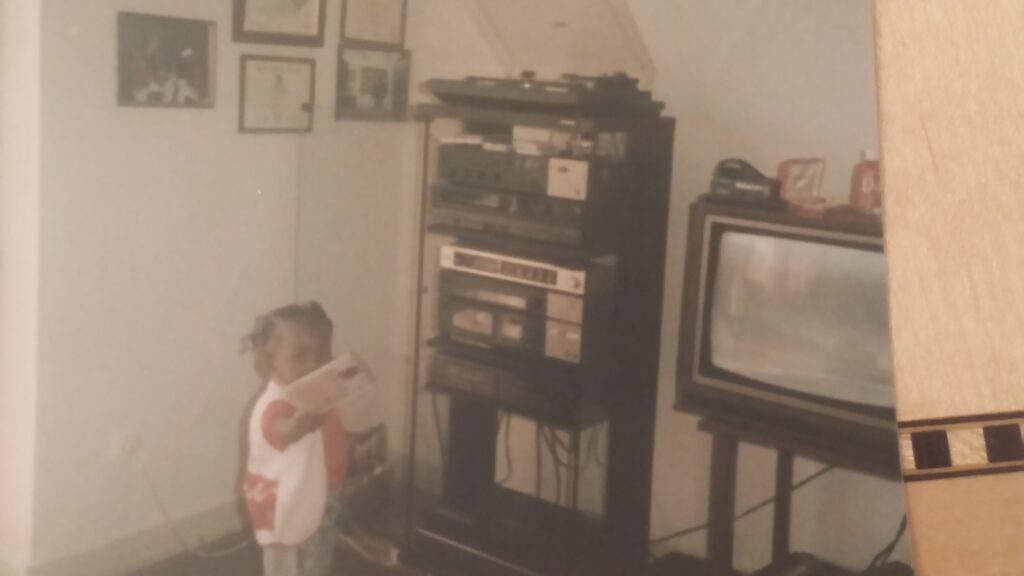
Fast-forward to 2006, when I was among a small group of Black girls at Coachella sweating it out to Daft Punk live. As an adult transitioning into my writing career, that enthusiasm evolved from fandom into my being one of a handful of Black journalists covering the electronic music scene during the mid-2000s “bloghouse” era. During that period, I felt like such an outcast, even though house music and techno roots stem from the Black and Brown communities of Chicago and Detroit in the 1980s. However, even today, representation and equity remain essential discussion topics within the industry.
On June 7, 1979, President Jimmy Carter decreed June Black Music Month. Each year, this month-long celebration of Black musical contributions highlights Black artists of yesterday and today to inspire future artists and music lovers. Today, there’s no shortage of Black electronic dance music artists who impact the scene. If you’re planning a visit to Detroit, hit Movement Festival and the world’s first and only techno exhibit, Exhibit 3000. Stay at the Detroit Foundation Hotel. If you’re ever in NYC, dance and vibe at Dweller Forever, a festival celebrating Black electronic artists. Do all the rave-y things!
In the meantime, get inspired by these five phenomenal Black DJ-producers honoring the past, present and future of electronic dance music. I spoke to them about the state of the industry, music festivals that feel like “home” and more!
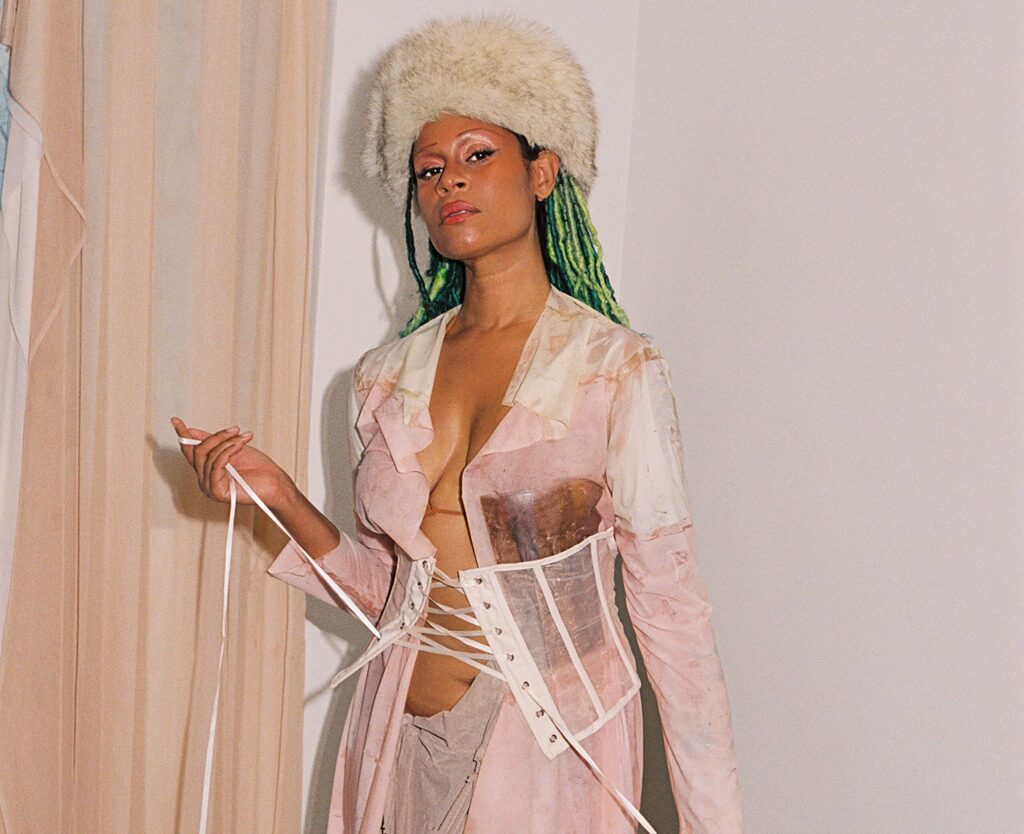
Aluna
We’re approaching the first anniversary of your sophomore album, MYCELiUM. In an interview with NPR, you mentioned that with that album, you were becoming an advocate for all the changes you want to make in the dance music industry. In what ways do you feel your statements and actions have positively impacted the industry?
Aluna: When I think about impact and when I was addressing the whole industry, I was taking on more of the macro challenge just to find a direction, but what I really wanted to do was focus on my “backyard,” and that’s been really healthy for me because I very quickly realized that challenging the whole industry was going to be overwhelming. However, I needed to understand how the entire industry interacts and how these different parts of the industry affect other parts. So, I feel like I’ve created more of a micro blueprint for how the industry could move forward by affecting the extent of my influence.
So, yes, I have Noir Fever, a label that is built to support Black dance artists, especially women and LGBTQ people who are systematically overlooked, but from my perspective, what I’m doing is finding the crème de la crème because I understand where culture originates from. It has and will always come from the Black and LGBTQ community. A healthy industry invests in the most important areas. To me, invention, discovery, and pushing forward for the new generation are so important. Otherwise, you get a stagnant, boring industry.
What venue or festival—anywhere in the world—feels like “home” and why?
A: I’ve never had more life-expanding experiences than going to Glastonbury, where anything can happen. You can lose all your stuff, friends, and all the awareness of who you once were, and you have to find new friends, music, and maybe new stuff, like new shoes. I remember somebody took my shoes, and I had to wear paper shoes wrapped around my feet with tape. I was so proud of myself. It’s like Narnia. It’s never the same each time you go, and always challenging.
I love your commitment to your fans, especially fellow Black electronic music lovers. You even host Black raver meet-ups at festivals! How have these initiatives affected you as an artist?
A: My commitment to my fans is an interesting one because I’ve always struggled with the concept of even having fans. I see people who like my music as mutuals and how I connect with people because I see myself as a reason for people to get together. People might be initially excited about it being me, but I know that as soon as I take one step out of the light, people see and find each other, which is always my goal. I’ve seen people connect under the umbrella of connecting with me, and they go on to have these enriching relationships, friendships, business relationships, and personal relationships, and it’s just amazing.
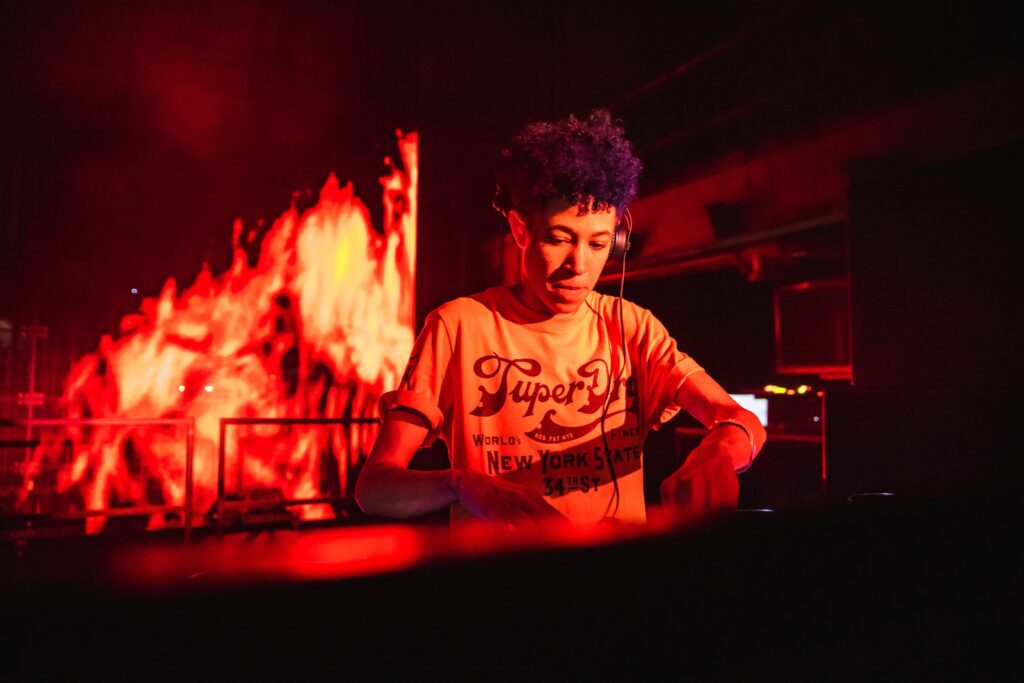
OLAN
What was your first introduction to electronic music? How did that experience impact you and your eventual decision to pursue music as a career?
OLAN: My earliest memories of exposure to dance music come from cartoons and video games—from the classic drum and bass theme song in The Powerpuff Girls to discovering Bonobo, The Chemical Brothers, Basement Jaxx, and Fatboy Slim in SSX 3, which was one of my favorites to play solely for its soundtrack. I grew up playing and writing in rock bands and church but didn’t get around to electronic music until 2011. I went to HARD Summer with some friends who exposed me to Little Dragon, A-Trak and Miike Snow, to name a few. Watching electronic music performed live made me want to pursue it. I’d also say watching Radiohead play live at Bonnaroo also made a huge impact.
Who (or what) are some of the muses that inspire you to show up authentically in the studio or behind the decks when performing live?
O: My newer music is primarily inspired by books I’ve been reading, but rock and R&B live performances mostly inspire my studio experience. Recently, I’ve been obsessed with Model/Actriz. I like music that doesn’t just feel like background noise. I like watching artists who are so charismatic that it makes you feel just as powerful. I think portraying raw emotion on stage is exciting, but it’s not something we typically see in DJ sets outside of flashy production value. It’s something that I always aspire to improve on, and I hope to do more by playing songs live instead.
Even though house and techno originated in Black communities in Chicago and Detroit, it often feels like you’re a “unicorn”—and some people will low-key remind you—when you show up to massive electronic music festivals. What’s helped you overcome micro-aggressions centered on “not looking” like a big room DJ?
O: I’ve struggled with this a lot. My project grew quickly after signing to a British label that only had a couple of POC acts, none receiving the same level of push I was at the time. For 2-3 years, the label’s fanbase constantly harassed my appearance and music choices, which became much more popular now. I would experience microaggressions from other artists and even some occasional use of slurs, but at the time, I just felt like I needed to tolerate it. I thought my success would mean I could eventually be an exception to an environment that deliberately suppresses and takes from minority groups.
It’s a constant practice to check your intentions in this line of work. I have to choose not to give certain people a say in how I create or perform. I must remind myself that financial security usually comes at the cost of artistic integrity and safety, and plenty of people take the time to understand the work I put into my music. Those are the people I will make sure I’m serving. The rest is noise from people I can’t convince to like me or whatever I do. It’s a constant practice not to give energy to it. I must show up for myself instead.
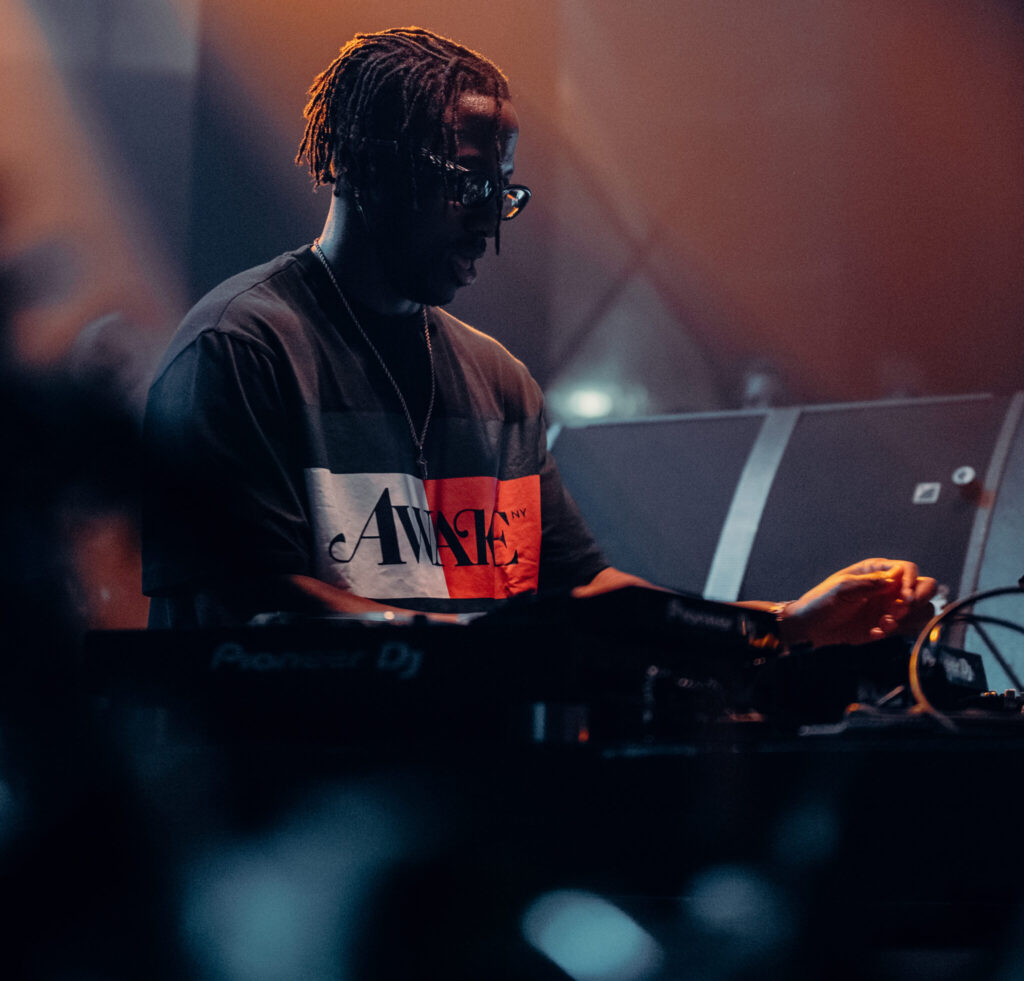
AMÉMÉ
Your brother introduced you to electronic music after his stint in Lyon, France. Then, in 2012, you moved to NYC to pursue med school. That year, you attended your first rave. Which party series was it? In what ways did that experience enhance (or not) your newfound appreciation for electronic music?
AMÉMÉ: It was the first Pink Elephant Club in New York, and they were doing Thursday nights with DJ Etienne. I’ll never forget how vibey and sexy it was in there. I remember the first time I walked into that club and knew I belonged there. I remember seeing people getting loose on the dance floor and really letting go—it was something I had never experienced before. It captivated my attention and inspired me to understand the culture of dance music.
Since your first big break in 2020 with “Talk To Me”—the first release under your label One Tribe Records—to now touring the globe, how do you view the electronic music space? What do you love about it most? In what areas would you like to see improvement?
A: I see the electronic music space as an ever-evolving space, specifically now where genres are getting blended and new genres are getting the spotlight. Crowds are getting more and more hands-on with how they learn about and interact with dance music. People get what they want and know where to find what they like. Technology has had an impact on the industry. There is a lot more musical material out there. The lifespan of a hit has shrunk dramatically with there being so many releases these days. There is less gatekeeping since anyone can release music with new technologies and services.
Let’s give some flowers where they’re due. What fellow DJ-producer has inspired you throughout your journey?
A: Black Coffee has been one of my biggest inspirations. His journey to success showed me that a kid from Africa can also make it to the world’s big stages.
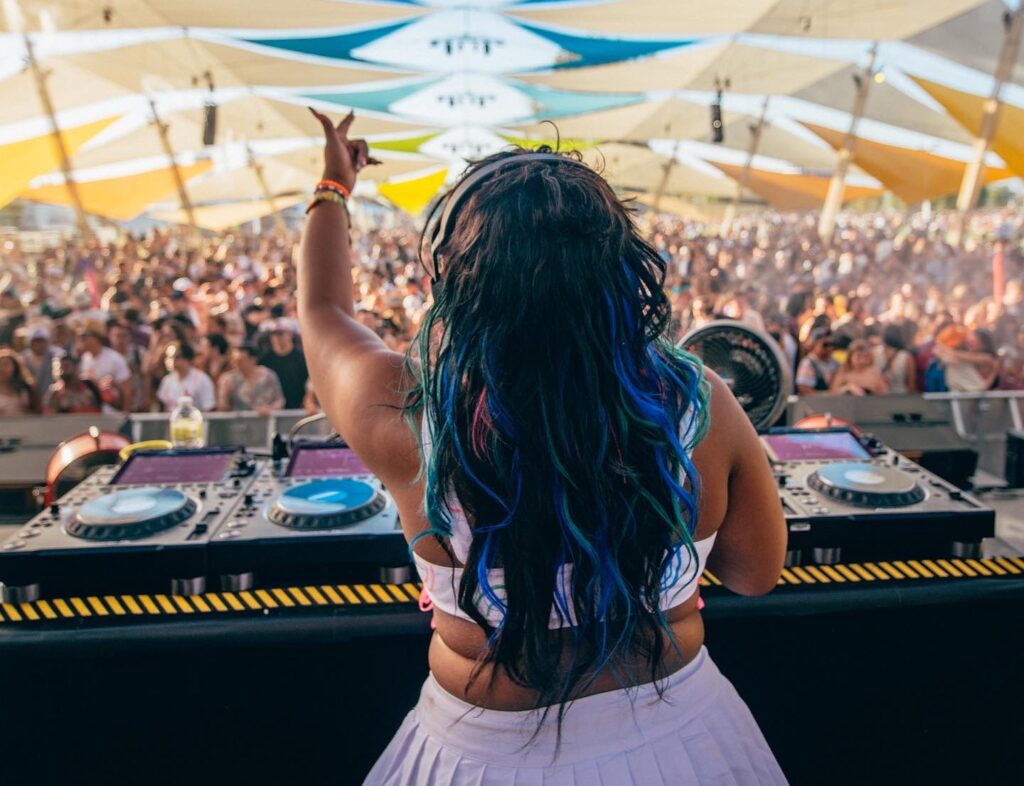
UNIIQU3
From being a classically trained pianist to a hip-hop fan to establishing yourself as a DJ in the early 2010s in Newark, New Jersey, how has having such a diverse musical palate influenced you as an artist?
UNIIQU3: Yes, that was kind of a culture clash. Taking ballet classes, piano lessons, and being a theater brat opened my musical palate beyond what was soundtracking my day-to-day as an East Coast girl. I loved Dipset, Missy Elliot, Jay-Z, Aaliyah, and Gwen Stefani. I appreciated their use of samples. Often, I would hear my classical pieces in hip-hop. For example, JAY-Z’s samples of Annie or Oliver Twist. It was cool to see my worlds collide effortlessly, and this was all before club music took over, but it’s something that I still grab inspiration from to create music today.
What’s been your favorite festival or venue to play? What made it special?
U: My favorite festival would have to be Afropunk. I love what the brand stands for, and I truly think they were ahead of their time in tapping into Afrocentric scenes internationally. They’ve tapped into numerous Black dance scenes from Jo-burg to New Jersey. I’ve played their festival in Atlanta in 2017 and Brooklyn in 2019.
I love your TECHNO IS BLACK playlist! What inspired you to create it?
U: At the time, we were in the middle of the pandemic, and protests for George Floyd were popping up worldwide. As Black Music Month approached in June, I wanted to do my part and raise awareness of Black artists leading dance music by letting people know who to support directly and who donated their music proceeds to those in need and soundtracking the times.
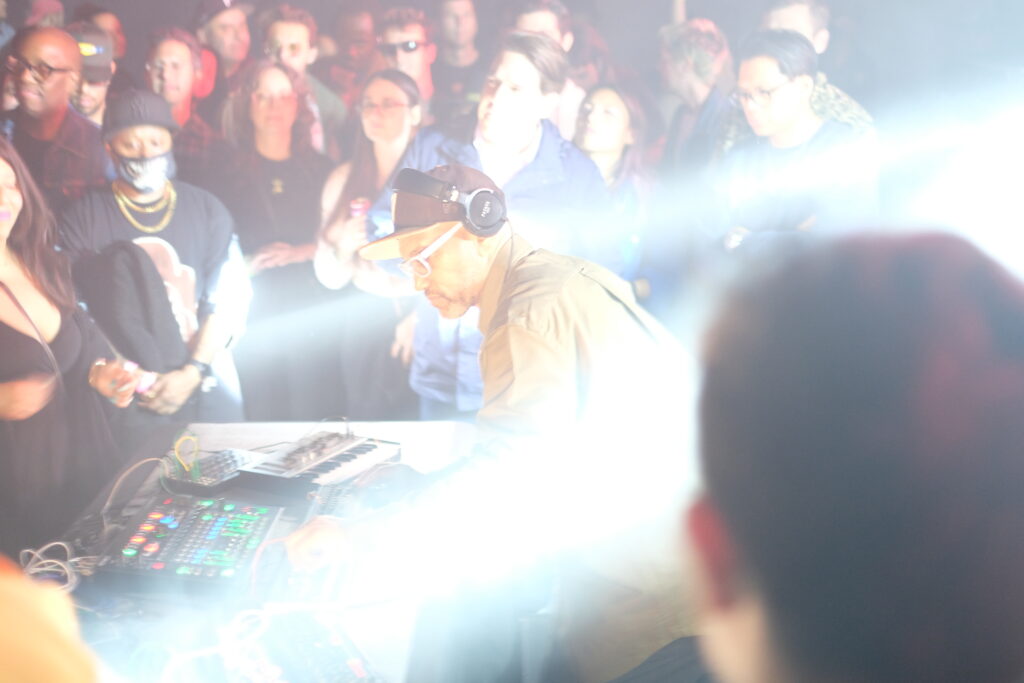
King Britt
As a University of California San Diego professor, you teach and curate Blacktronika: Afrofuturism in Electronic Music. But Blacktronika is no longer just a college course. It’s also now an exciting event. What do you hope college students and Blacktronika event attendees alike walk away knowing and feeling?
King Britt: In 1999, Blacktronika started in London with Charlie Dark from Attica Blues, who wanted to honor all the artists of color—music and visual—in London but in spaces where you may not expect—so, starting with the ICA and moving to different museums and art spaces until 2005. He’s a very close friend; I used the name with his blessing.
Now full circle, Blacktronika is a special night on campus and a moving global festival (Paris in February) that is an extension of the course, with workshops as well. I want students to leave the events understanding the visceral feeling from the music on a great sound system. I want festival attendees to get an experience from legends and new up-and-coming artists of color. In Brooklyn, July 14 is the next festival at Public Records!
You lived during the initial era of club culture and Afrofuturism when techno and house music were created within Black communities in Chicago and Detroit in the ‘80s. What excited you most about these scenes after first experiencing a techno or house DJ set live?
KB: I worked at the Philadelphia Tower Records as a 12-inch dance music buyer, talking to Carl Craig, Derrick May, Juan Atkins, 4 Hero, and many others on the phone ordering their new records. Being the conduit in Philly for not only selling but also playing music to the masses was truly exciting. This was the music of the youth and the music that shifted culture as we know it.
I remember hearing my old mentor Frankie Knuckles playing in New York or Tony Humphries in New Jersey, [David] Mancuso at The Loft, and Francois K. These were the most special moments. We were all making history.
Who are 2-3 of your favorite Black DJ-producers currently, and why are they your picks?
KB: AceMo and his whole crew are truly making exciting dance music that is part nostalgic and part future. Loraine James is one of the most talented out there. No one sounds like them! JWords—I love the vibes.
These interviews have been edited for length and clarity.
